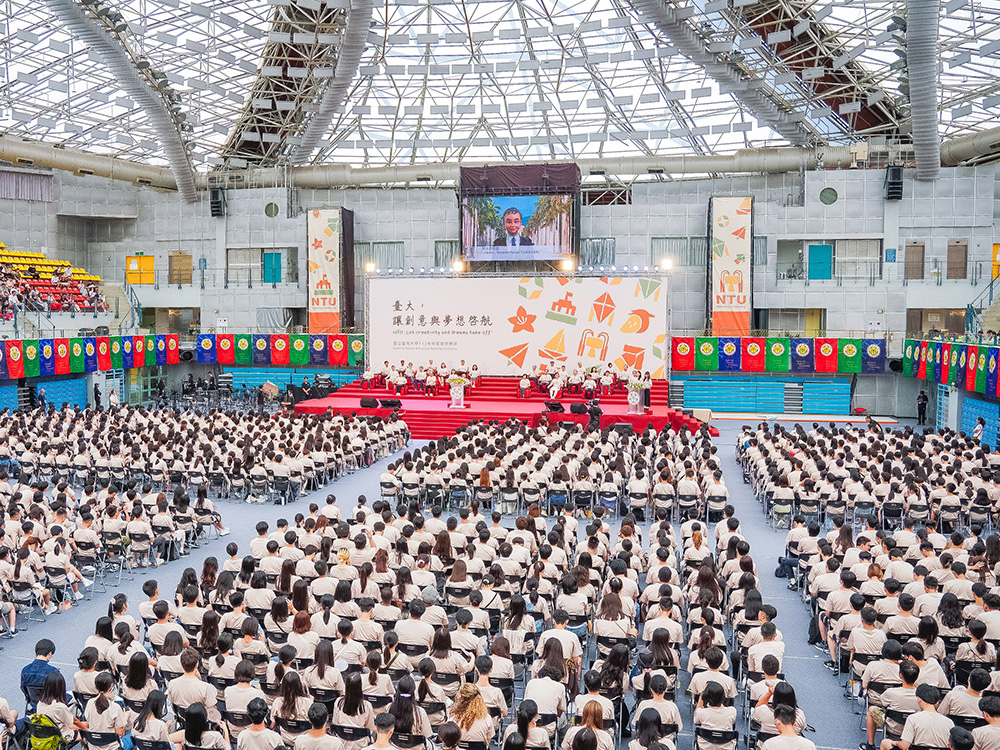
NTU Opening Ceremony: “Where Creativity and Dreams Take Flight”
瀏覽器版本過舊,或未開啟 javascript
請更新瀏覽器或啟用 javascript
Spotlights
Group photo by (from left to right) Chang Meng-fan (TSMC Director), Leu Jang-hwa (Director-General of Industrial Development Bureau), Chiueh Tzi-dar (Dean of GSAT), Nicky Lu (President of Etron Technology, Inc.), Pan Wen-chung (Minister of Ministry of Education), President Tsai Ing-wen, Kuan Chung-ming (NTU President), Kung Ming-hsin (Minister of National Development Council), Frank Huang (President of PSMC), Chen Ming-syan (NTU Vice President), Chen Tzong-chyuan (Vice Minister of Ministry of Science and Technology), and Professor Hsu Da-shan from MediaTek.
The opening ceremony also marked the inauguration of Chiueh Tzi-dar (on the right) as Dean of GSAT.
NTU set up the Graduate School of Advanced Technology (GSAT) in the Academic Year 2021 according to the Innovation Act Governing the National Key Fields Industry-University Cooperation and Skilled Personnel Training to work with the national policy. The opening ceremony took place on December 24. Attendees to the ceremony include government officials such as President Tsai Ing-wen蔡英文, Pan Wen-chung潘文忠(Minster of the Ministry of Education), and Kung Ming-hsin龔明鑫(Minister of National Development Council), as well as representatives from partner corporations, including Frank Huang黃崇仁(the president of PSMC), and Nicky Lu盧超群(the president of Etron Technology, Inc.). Based on the existing foundation, GSAT will continue to optimize the level of research and development and nurture high-level talent for two reasons: To consolidate Taiwan's pivotal role in the supply chain of advanced technology and fulfill NTU's social responsibility as the top university in the country. Kuan Chung-ming管中閔, the president of NTU, also anticipates that NTU can unleash its full potential under complete university autonomy with the Innovation Act further loosened.
With fierce global competition in semiconductors, coupled with ever-changing technologies and market demands, the industrial supply chain is facing transitions and challenges. Taiwan plays a pivotal role in the supply chain of the high technology industry. It is necessary to make the best of the know-how and production capacity, optimize the level of research and development, and nurture talent in earnest to stay at the leading position and cope with the talent shortage issue in the industry effectively. After the passing of the Innovation Act in May, it is hoped that loosening regulations on organization and personnel can make pooling resources from all sectors more flexible. In addition, it can establish a mechanism that encourages public-private co-education, co-creation, and co-prosperity between academia and industry. In so doing, academic research and technological development in the industry can go hand in hand; more talent that pioneers innovation in academic research can be cultivated so that Taiwan can stay competitive and create a prosperous future for the industry.
GSAT has received funding and human resources from TSMC, NSMC, MediaTek, Etron Technology, and other companies. It also has strong faculty support from the Colleges of Electrical Engineering and Computer Science, Engineering, and Science. With jointly-developed courses, industry talent as faculty, R&D internship opportunities, and English lectures, students of GSAT can work on practical topics, interact deeply with the industry sector, and have leading know-how as well as great international competitiveness when graduating.
Kuan indicates that GSAT is a new form of graduate school, connecting higher education and the high-tech industry. They share some commonalities: (1) They both pursue innovation and breakthroughs. (2) They both face the pressure of international competition, but they also have local demand. (3) They both need plenty of talent and continue to nurture more. Only talent can establish the advantage of innovation and maintain the leading position globally, whether for higher education or the high-tech industry. The goal of GSAT is to foster key technological talent and conduct pioneering and ground-breaking research. To this end, the Innovation Act empowers GSAT with more autonomy in terms of personnel, funding, and university-industry cooperation. Relaxing these regulations will create a sandbox for educational innovation, the first step for allowing universities to pursue greater autonomy.
Kuan further pointed out that experience has shown that setting restrictions will drain the vitality of universities, strangle innovation, and limit the development of talent. The establishment of the Innovation Act will allow the new school to be free of constraints and give full play. As GSAT practices autonomy, it is hoped that there will be more relaxation in the Innovation Act, which can apply to the entire NTU or other universities that set up a similar school. NTU is an icon of Taiwan. It is believed that with complete autonomy, NTU can unlock its full potential, play a leading role globally, and bring Taiwan to the eyes of the world.
Chiueh Tzi-dar闕志達, Dean of GSAT, is an IEEE Fellow. He used to be the director of NTU's Graduate Institute of Electronics Engineering, the director of the National Chip Implementation Center, and the vice president of the National Applied Research Laboratories. He is currently a member of the consultative committee for Executive Yuan's Board of Science and Technology. His expertise covers the design and application of artificial intelligence in integrated circuits, wireless communication technology, integrated circuit system design, etc. GSAT has established master's and doctoral programs in three areas, including "Integrated Circuit Design and Automation," "Semiconductor Device, Material, and Hetero-integration," and "Nanoengineering and Nanoscience". Nearly 280 exam candidates have signed up for the screening and test for the first-year admission of the three master's programs; 75 of them have been admitted. The general admission of the three doctoral programs will begin during March and April 2022.

NTU Opening Ceremony: “Where Creativity and Dreams Take Flight”
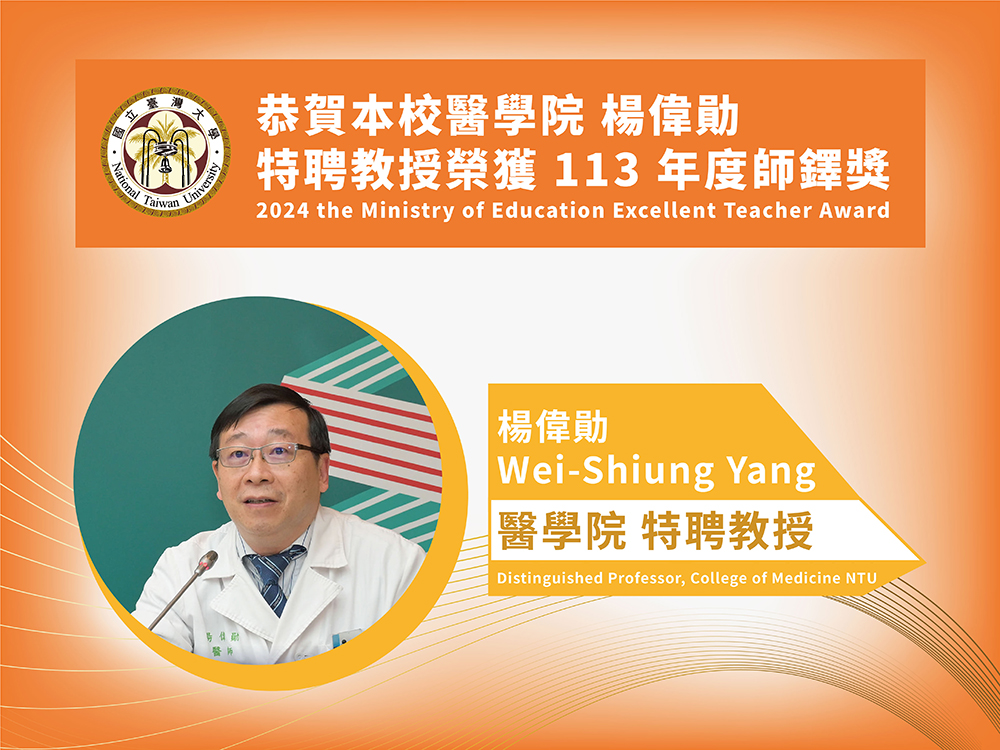
Prof. Wei-Shiung Yang wins MOE National Excellent Teacher Award
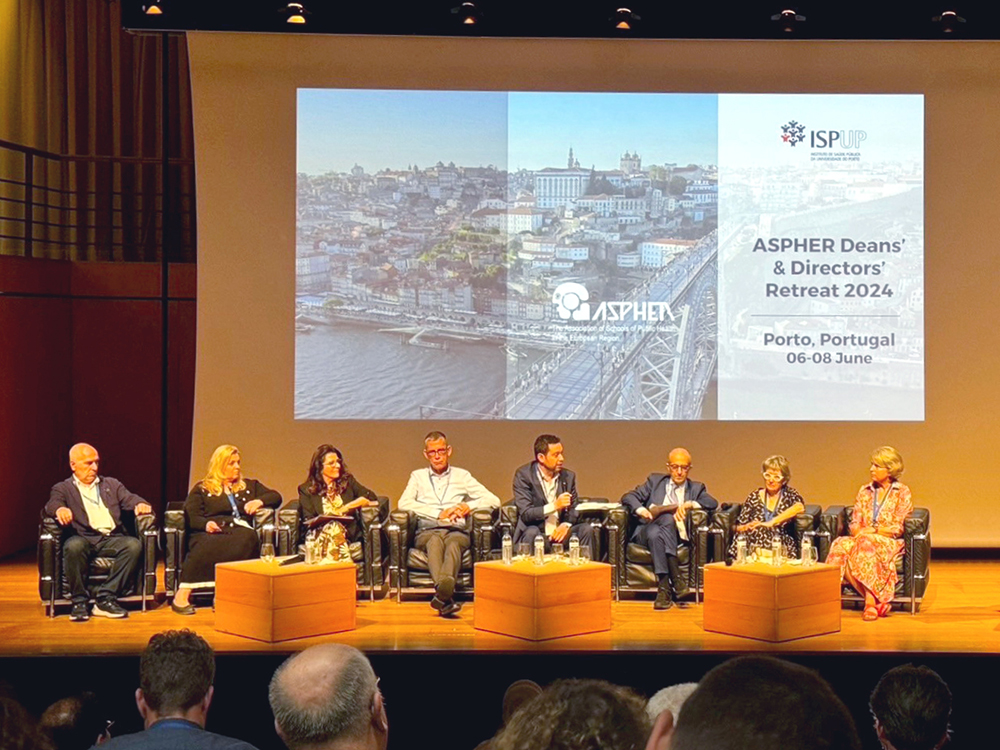
NTU College of Public Health's Global Health Program Joins the Association of Schools of Public Health in the European Region
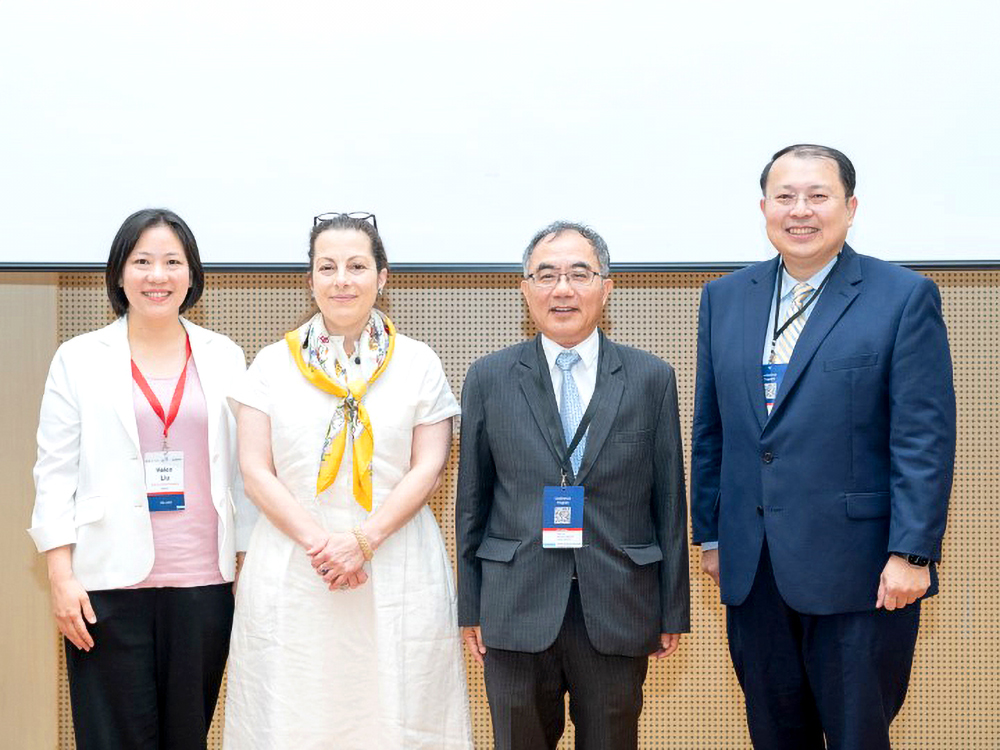
NTU hosts a successful dg.o 2024
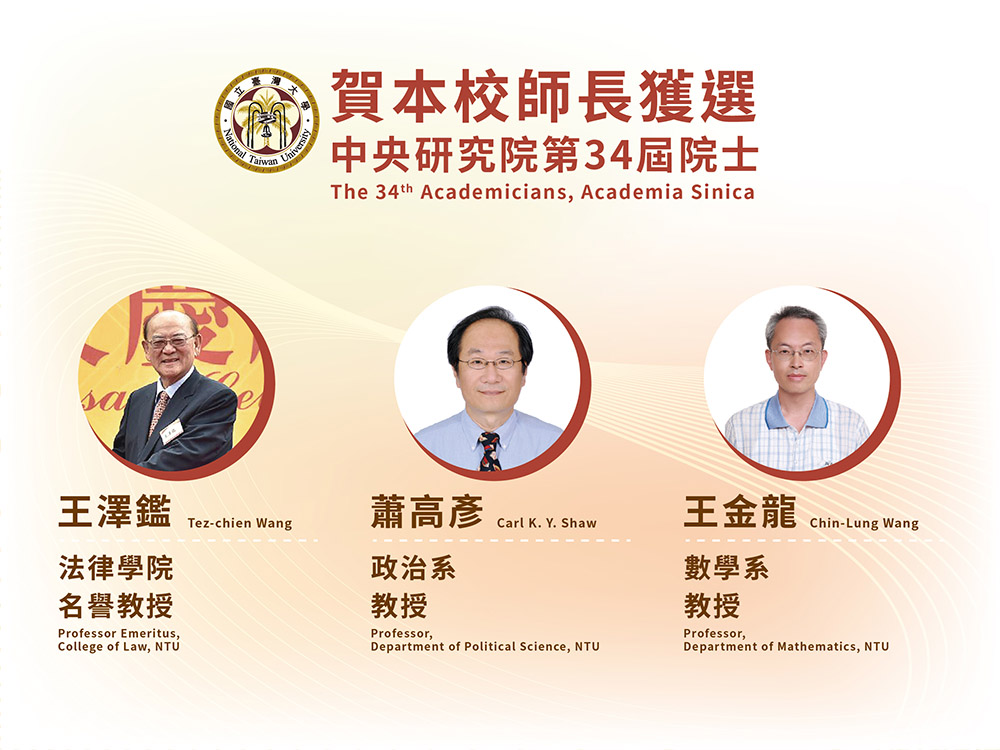
Congratulations to NTU faculty members elected as 34th AS academicians
Current Spotlights